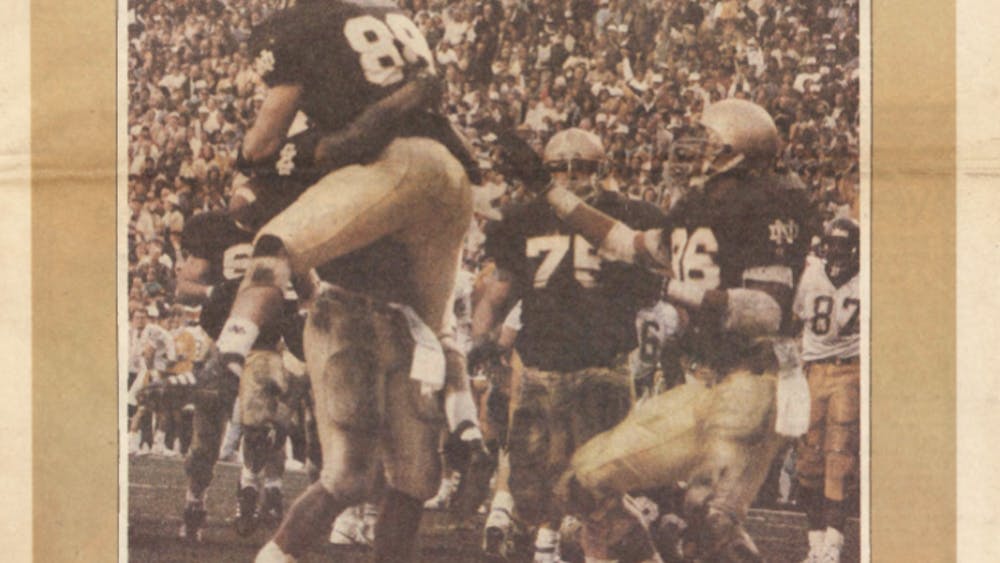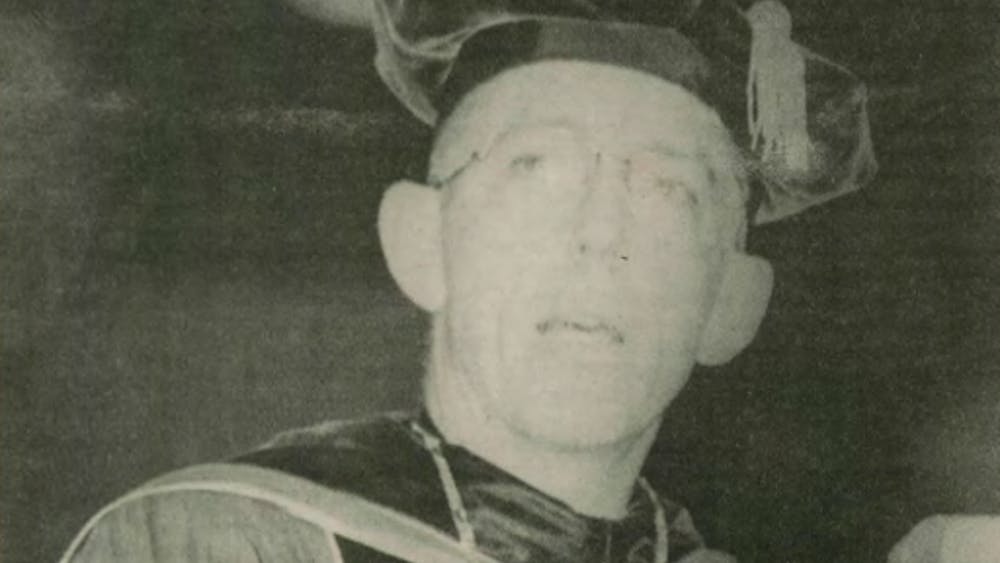In this episode of The Recap, host Maria Luisa Paul covers the results of the 2021 student government election which occurred Wednesday. She also discusses the number of positive COVID-19 cases on campus and recaps the events that were held during Walk the Walk week.
[audio mp3="https://ndsmcobserver.com/wp-content/uploads/2021/02/1614533520-e7d6627d64e9816.mp3"][/audio]
Transcript:
Maria Luisa Paul: From the News Department of The Observer, this is The Recap. I’m Maria Luisa Paul, and I’ll be hosting this episode of The Observer’s news podcast — serving Notre Dame, Saint Mary’s and Holy Cross.
To start off, let’s take a look at recent COVID-19 statistics on campus. As of Saturday, Feb. 27 there have been 751 confirmed cases, of which 304 are estimated to be active. The spread seems to be decreasing slightly. This week’s trend shows a 1.3% positivity rate compared to last week’s one of 1.6%. On Thursday, Feb. 18, the University announced a set of restrictions that would run through at least March 1. This included limiting dorm visitations, reducing seating in public spaces and prohibiting in-person student club and activities meetings. In the coming days, we’ll see whether the University chooses to either alleviate or maintain these modifications.
In other news, after having received 1,881 votes, juniors Allan Njomo and Matthew Bisner were announced as the winners of the student government elections on Thursday evening. Max Siegel and Zachary Holland received 1,037 votes. Juniors Mabry Webb and Jacob Calpey finished with 757 votes.
Thomas Davis: We had a total of 4,030 students casting valot votes in the president and vice-president election and Referendum 2021-01. The turnout for this election was 45.63%, that is the highest recorded in three years. The Judicial Council commends the candidates and the Elections Committee for their outreach efforts, which facilitated this increase in turnout despite a small number of tickets this year and University restrictions on in-person student activities due to community health concerns.
Maria Luisa Paul: That was Judicial Council President, junior Thomas Davis. Because of the pandemic, this year’s results were live streamed. Compared to last year, this election looked a little different because of the small number of tickets, but also because of the lack of sanctions. The results were originally scheduled to be announced on Thursday at 12:15 a.m., but after an allegation of misconduct was submitted to the Judicial Council on Wednesday, the results were delayed until Thursday evening.
Thomas Davis: An allegation was submitted at 11:58 p.m. on election night, and, therefore, pursuant to article 15 section 1J of the Constitution of the undergraduate student body of the University of Notre Dame du Lac, the results of the election had to be delayed. While unfortunate in timing, the Judicial Council considers each instance of an allegation of election misconduct seriously. Regardless of the time they are reported, the Judicial Council diligently entertains the evidence provided, and makes a decision on the issue independently from the rest of the election process, including a pending tentative schedule release of results. The Judicial Council meticulously reviewed this allegation to determine if it merited a hearing of the Elections Committee, in doing so, we presume the allegation to merit a hearing unless there is simply no plausible Constitutional argument under which a violation of election regulation occurred.
Maria Luisa Paul: Here’s Associate News Editor Isabella Volmert with more information.
Isabella Volmert: According to a Judicial Council advisory opinion, the allegation was in regards to an Instagram story that shared a post and added the line, “One of the best minds of stu gov ([former president]) just backed [alleged party.] I know how I’m voting tomorrow!” However, the Judicial Council determined that the allegation had no merit because the “former president” in question graduated in 2020, and because the story was posted by a member of a campaign team.
Maria Luisa Paul: Another interesting part of this election is that it included a referendum on petition signatures. On Thursday’s livestream, Davis announced that it had failed.
Thomas Davis: This referendum ordered by the Student Senate to gauge student opinion asked: raise the standard of valid signatures required of petitioners to the student senate from 200 to a number between five and 8% of the undergraduate student body to be determined by the Student Senate. There were 794 valid votes for Yes. And 2698 valid votes for no, with 538 students abstaining. Thus, the referendum failed by 23% to 77% margin.
Maria Luisa Paul: Now moving away from election news, this weekend marks the culmination of Walk the Walk Week, a week-long series of events designed to both commemorate Martin Luther King Jr. and reflect on how Notre Dame can become more inclusive.
Siobhan Loughney: This year’s Walk the Walk began on Monday, Feb. 22 and featured 11 virtual events, as well as an in-person discussion and exhibition of work from contemporary Black artists at the Snite Museum.
Maria Luisa Paul: That’s news writer Siobhan Loughney. She talked to Benedict Phillips, a former Kellogg Visiting Fellow, who led a Monday panel titled, “How to Fight Inequality and Why That Fight Needs You.”
Benedict Phillips: When I looked back at history and how change had happened, it didn’t come from a small number of brilliant, super eloquent activists. It came from mass organizing — it came from hundreds of thousands of people stepping up and playing a role in leadership.
Siobhan Loughney: Phillips is the co-founder of Fight Inequality Alliance and the author of “How to Fight Inequality,” a book on bridging the ever-widening gaps in wealth and power seen around the world. His panel featured four students who have experience in activism and fighting inequality. He said he hoped it inspired participants to take action.
Maria Luisa Paul: That’s all for this episode of The Recap. Thanks for listening. I’m Maria Luisa Paul. Join us next week for a new summary of the major headlines on Notre Dame, Saint Mary’s and Holy Cross’ campuses.
Music by Ryan Neff
Read More
Trending









